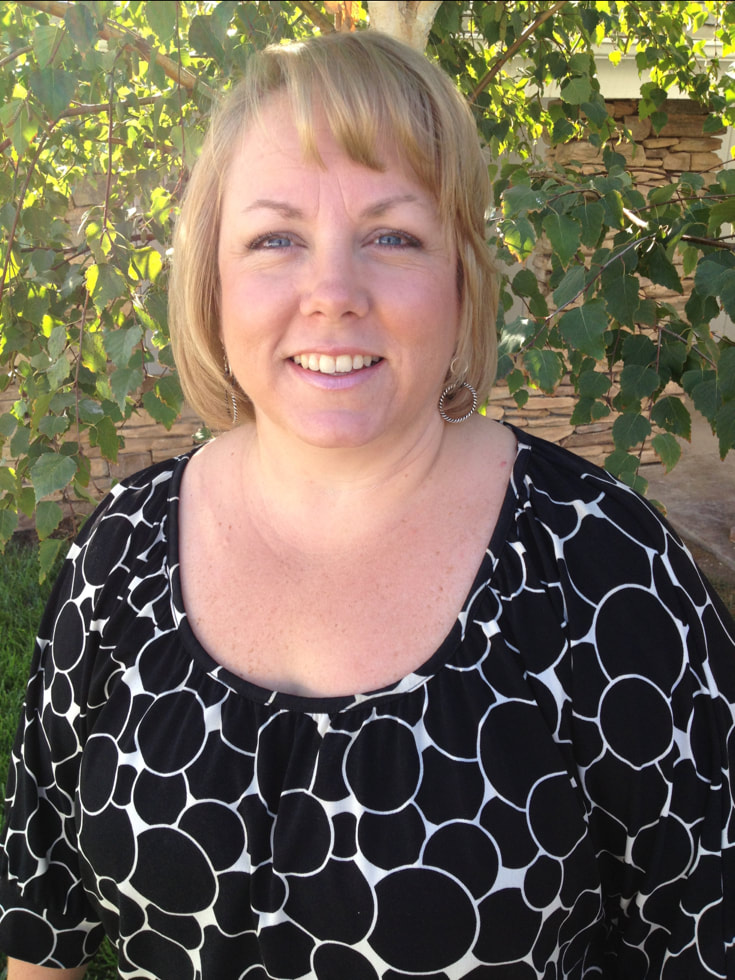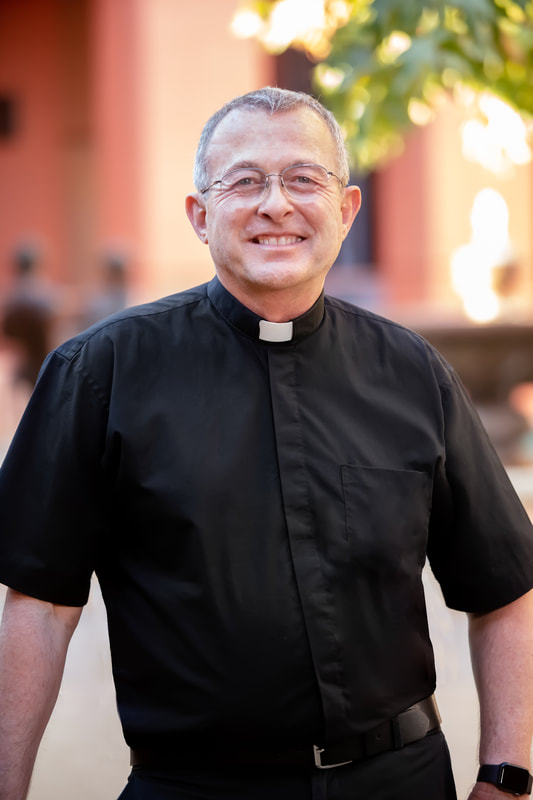|
10/30/2020 Blessed are You…Dear Parish Family,
Happy All Saints day! Every year on November 1st, the Church takes a pause to recall the example, witness, and prayer of the holy women and men who have been identified by the Church as Saints. On this feast day it is so perfect that the Gospel proclaimed is Jesus’ Sermon on the Mount, in particular, the Beatitudes. We hear the words “Blessed” in some translations the words “Happy”, “Fortunate” or “Favored”. These words help us understand what Jesus is saying, that there is divine favor for the poor in spirit, the meek the persecuted. As was expressed in the second reading, to be a Christian means that at times we live contrary to the ways of this world. The world says success is based on wealth, but Jesus says we are to be “poor in spirit.” Money itself is not bad, but “the love of money is the root of all evil.” Jesus calls us to be detached from wealth. Furthermore, the world tells us to seek pleasure. Just think of the popular phrase, “Do what you want, whatever makes you happy” Rather, Jesus says, “Blessed are those who mourn.” The world tells us to seek power, but Jesus says be “meek.” Moreover, the world says honor and the approval of others is important, but Jesus says, “Blessed are they who are persecuted for the sake of righteousness.” The Beatitudes can be understood as a framework for Christian living. Simply put, they are the “how to’s” of sainthood. There is a reason why in the process to declare someone a saint they are “Beatified”. Saints are “meek;” they are “pure of heart;” saints are “merciful” and “peacemakers;” they “hunger and thirst for righteousness.” God’s children are even willing to be persecuted and insulted for the sake of Christ. Therefore, if we want to be a saint, we must seek these things. On this day, we too are challenged to model our lives on the spirit and promises of the Beatitudes. If you find it difficult, just remember, “Rejoice and be glad, for your reward will be great in heaven.” In other words, it’s all worth it in the end. 10/24/2020 Know It, or Live It?Dear Friends, In last week’s gospel, the Sadducees tried to trap Jesus by asking if it was lawful to pay taxes to Caesar or not. In this week’s gospel the Pharisees, having heard how Jesus had “silenced” the Sadducees (remember the episode about the coin?) decided to test him by asking which commandment of the law is the greatest. By the way, not all Pharisees nor all Sadducees were “villains,” though that’s how they’re often portrayed in the gospel. Many were devout and faithful though some did try to trip up this Galilean rabbi, Jesus, whose answer was, of course, beyond reproach: “You shall love the Lord, your God, with all your heart, with all your soul, and with all your mind.” In any case, the question begs reflection. It’s one thing to know the answer to what the greatest commandment is and quite another to examine our own lives to see if we are obedient to it. In the second reading, Paul writes to the Thessalonians about their “receiving the word in great affliction, with joy from the Holy Spirit, so that you became a model for all the believers ...” One could say that we are in a time of “great affliction” having had to adjust to the pandemic since last March. Judging by the atmosphere at “mass on the grass” these last months, I think we have received the word “with joy from the Holy Spirit.” The gospel and first reading give us the signposts to become “a model for all the believers.” In the first reading, the chosen people are commanded: “You shall not molest or oppress an alien, for you were once aliens yourselves in the land of Egypt. You shall not wrong any widow or orphan.” The reading continues with a warning against usury and that the Lord will hear the cry of those wronged, and “my wrath will flare up.” I like to imagine what may happen to certain credit card companies...but I digress.
10/16/2020 Children of God
In Jesus’s time, there were men and women who were Jewish, living under the Roman government as residents of Galilee, Judea, and surrounding regions. Also living among the Jews were Romans, Samaritans, and Gentiles. Like us they were spouses, parents, children, and siblings who had jobs and responsibilities in the empire. In today’s gospel, the Pharisees are determined to undermine Jesus by asking if the Jews should pay taxes to Caesar. While they are opposed to paying the tax, the Pharisees quickly produced a coin upon Jesus’ request which seems to imply their use and acceptance of its benefits. Sidestepping a direct answer about lawfulness issue, Jesus instead directs them to “repay to Caesar what belongs to Caesar and to God what belongs to God.” He’s saying if you’re going to use Caesar’s coin, then repay him, but more importantly give to God what belongs to God. Sometimes this gospel story has been used to argue for the separation of religion and politics. But Jesus is saying it’s not that simple. There’s a danger in compartmentalizing our lives, religion from politics and the spiritual from the worldly, because, like Caesar’s imprinted image on the coin, God’s image is imprinted on our hearts. At the core of our being is our creator God. We belong to God and his imprint should inform and influence every part of us, everything that makes us who we are. Before our secondary identities, we are children of God. Before we are spouses, parents, friends, co-workers, citizens, residents, liberal or conservative, we are children of God and as such, we are whole persons called to give back to God by living the gospel values, values that influence how we live, work, play, vote, make decisions, and interact with others and the world around us.
10/12/2020 Abel (Abe) August1935 - 2020Vigil / Rosary
Thursday, October 22, 2020 4:30 pm Padre Serra Parish Funeral Liturgy Friday, October 23, 2020 9:00 am Padre Serra Parish Funeral Following Mass Griffin Family Funeral 10/9/2020 Come to the FeastIn both the first reading, from Isaiah, and in the Gospel, the topic is feasting. God is holding a big bash, the very biggest – no exaggeration here – and we’ve all received an invitation! Isaiah writes for people in the king’s court. Food would have been abundant there under almost all circumstances except, perhaps, in time of war and siege. Matthew’s Gospel, written five to seven centuries later, was addressed to ordinary people, most of whom would have lived very close to hunger. Most people seldom had meat, except on special feast days, and survived on a diet of bread with the fruits and vegetables of the season. The food would either require hours of preparation, or purchase from a tavern or restaurant with high prices. Bad weather like drought or flooding, field pests and warfare made famine an ever-present possibility. If you recall when, out of his compassion for the hungry crowds, Jesus multiplied the loaves and fishes, and everyone ate their fill and there were baskets of food left over, people continued to follow Jesus for days, hoping for a repeat of the feasting. Jesus tried to redirect their attention to the eternal questions and the bread of heaven – see John, chapter 6 – but his followers’ bellies got the best of them. They had lived so long with hunger it was hard for them to shift from that focus. Even today, access to food depends on where you live. Although the statistics I’m giving vary from one version to the next, the following seems to be in the middle of the scholarly offerings. In the United States, average Americans spends roughly 6.4% of their income for food. In 1900 AD, only 120 years ago, providing food for a family consumed as much as 43% of wages, whereas housing was only 23%. Things certainly have flipped. In Nigeria today, on the other hand, each household spends only half of what we would on food in a year. There, however, that lesser amount consumes 56.4% percent of most household’s earnings. Food is a much greater concern for the average person in Nigeria than it is for us in the United States. I share these stats just to give us an idea of how different the whole question of feeding one’s family can be from time to time, and place to place. In both Isaiah and Matthew, there is a banquet prepared of rich food and pure choice wines, of slaughtered calves and fattened cattle. For their audiences, these images are very suitable metaphors for heaven where, finally, there would be enough for everyone. The wonderful thing is that we’re all invited. We live in such abundance that we may have to reach a little to understand how these feasts would have affected the original audiences. In Jesus’ parable, in particular, it would have been disturbing that people bypassed the opportunity repeatedly offered them. The incomprehensible behavior of the invited, but unwilling, guests deeply offends the king. The parable is actually speaking of the history of God’s chosen people, always invited into an eternal relationship with God, but often distracted by the world’s affairs. Can we honestly say that it is any different with us? The invitation still stands; the feast is still ready; the king has dispatched his servants to bring us together. The experience is going to be rich; the king offers the best of what is possible; the reward is eternal. Is it possible that we, too, are too busy to respond?
|
Blessed Sacrament Chapel HoursSunday - Friday, 8:00 am - 9:00 pm
Saturday, 2:00 - 9:00 pm Office HoursMonday through Thursday 8:00 am – 7:00 pm
Friday 8:30 am - 4:30 pm Saturday 3:00 pm - 6:15 pm Sunday 8:00 am - 1:00 pm Vertical Divider
|
Telephone(805) 482 · 6417
(805) 987 · 8100 FAX For emergencies requiring
|
For eNews you can trust.
Staff Login
|






 RSS Feed
RSS Feed